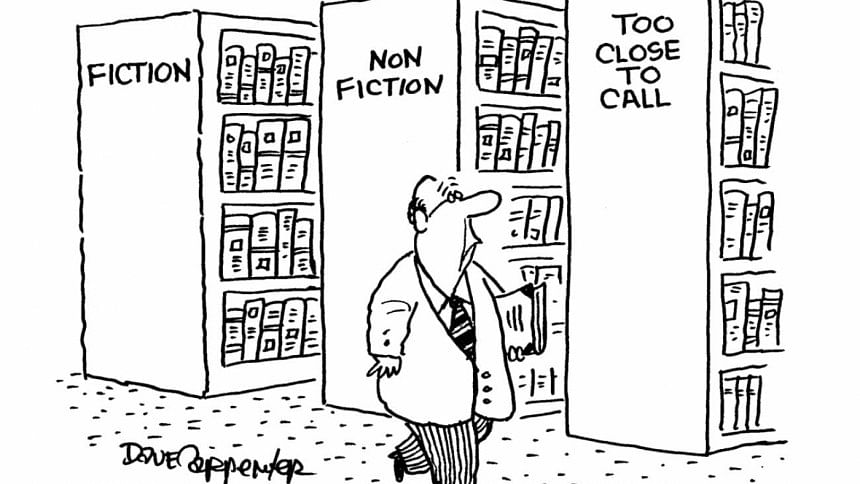Beginner's Guide to Nonfiction

When we talk about narrative literature, we generally mean fiction. Thrillers, fantasy, detective novels – name anything, and it's probably a category of fiction. But what about non-fiction narratives? What are they? Have you read one already and don't know yet? Let's find out.
Know what's it all about
Nonfictions deal with facts, experiences and ideas. A good fiction is subjective, whereas nonfiction can be both subjective and objective. It all depends on the author's writing style, perspective and what message he wants to convey to the readers. There are tons of literature websites explaining detailed characteristics and types of nonfictions. Go ahead and look them up on the internet.
Find out what specific type interests you
There are many specific types of nonfictions and not necessarily all of them will interest you. Biographies, autobiographies, memoirs, journals, travelogues, literary criticisms, book reviews, books about science, sports, history, politics, philosophy etc. all these are nonfiction categories. It's a huge genre. Suppose it is sports that you are passionate about; there are a variety of non-fiction categories such as sports science, biographies of athletes and sports history that may cater to you.
List down books you "should" read and prioritize them
The best privilege of reading nonfictions is that you can handpick topics or areas that interest you and read books written about that particular field of interest. It gives you an unprecedented reading liberty – the kind you more often than not won't get while reading fiction. So now that you have identified your category of interest, you have to find out the best books of that category. Ask people who have similar interests for suggestions. Go on the internet and search. A particular website can help you a lot while prioritizing: Goodreads has a plethora of customized lists tailored just for your topic of interest.
How many authors to follow
This basically depends on the type of nonfiction. Let's say you don't have the time to read a lot of authors, and are into travelogues. You can quite happily read Paul Theroux for the rest of your life without touching Bill Bryson. This is a more subjective type of nonfiction and one author can be enough. If you want to get an objective understanding of an issue such as the Israel-Palestine Conflict, you should read the works of multiple authors to get a substantial idea of the whole thing. People tend to be biased, more often than not, and authors aren't an exception either. History, politics, etc. demand that you read a wide base of authors.
Don't over-read
Reading supposed to be fun, and one common complaint about nonfictions is this – that they make you absorb so much information it can be a bit of a chore to read. It's best to take your time reading a non-fiction piece, and you probably shouldn't finish one book and pick up another. Try mixing things up. Read a thriller or fantasy novel after finishing a time-consuming autobiography. Balance heavy reads with lighter reads.
You're well set now. Go, explore the magical (er, factual!) world of nonfictions!
Ishtiaq Ahmed is a travel enthusiast who devours fictions, dreams of Paris and writes only when his brain parasites need a place to crash. Can be reached at [email protected]

 For all latest news, follow The Daily Star's Google News channel.
For all latest news, follow The Daily Star's Google News channel. 



Comments